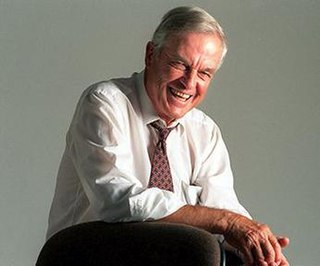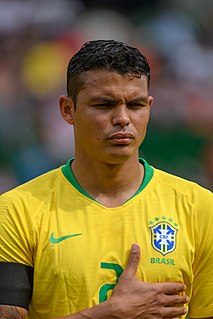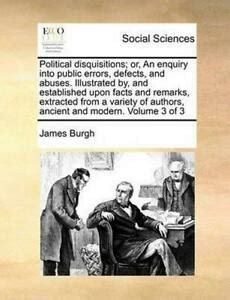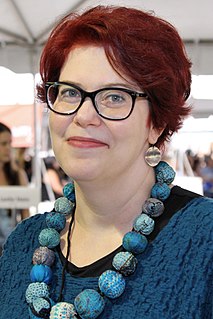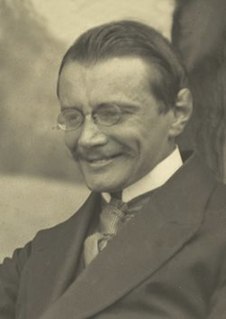A Quote by Max Stirner
Whoever knows how to take, to defend, the thing, to him belongs property.
Related Quotes
Men are four;
He who knows and knows not that he knows. He is asleep; wake him.
He who knows not and knows not that he knows not. He is a fool; shun him.
He who knows not and knows that he knows not. He is a child; teach him.
He who knows and knows that he knows. He is a king; follow him.
The heights by great men reached and kept
Were not attained by sudden flight,
But they, while their companions slept,
Were toiling upward in the night.
The whole earth, then, belongs to Jesus. It belongs to him by right of creation, by right of redemption and by right of future inheritance - as Paul affirms in the magnificent cosmic declaration of Colossians 1:15-20. So wherever we go in his name, we are walking on his property. There is not an inch of the planet that does not belong to Christ. Mission then is an authorized activity carried out by tenants on the instructions of the owner of the property.
There are four types of men in this world: 1. The man who knows, and knows that he knows; he is wise, so consult him. 2. The man who knows, but doesn't know that he knows; help him not forget what he knows. 3. The man who knows not, and knows that he knows not; teach him. 4. Finally, there is the man who knows not but pretends that he knows; he is a fool, so avoid him.
It is not the right of property which is protected, but the right to property. Property, per se, has no rights; but the individual - the man - has three great rights, equally sacred from arbitrary interference: the right to his life, the right to his liberty, the right to his property The three rights are so bound together as to be essentially one right. To give a man his life but to deny him his liberty, is to take from him all that makes his life worth living. To give him his liberty but take from him the property which is the fruit and badge of his liberty is to still leave him a slave.
It is a moot question whether the origin of any kind of property is derived from nature at all. It is agreed by those who have seriously considered the subject that no individual has, of natural right, a separate property in an acre of land, for instance. By a universal law, indeed, whatever, whether fixed or movable, belongs to all men equally and in common is the property for the moment of him who occupies it; but when he relinquishes the occupation, the property goes with it. Stable ownership is the gift of social law, and is given late in the progress of society.
The mother must teach her son how to respect and follow the rules. She must teach him how to compete successfully with the other boys. And she must teach him how to find a woman to take care of him and finish the job she began of training him how to live in a family. But no matter how good a job a woman does in teaching a boy how to be a man, he knows that she is not the real thing, and so he tends to exaggerate the differences between men and women that she embodies.
No kingdom can be secured otherwise than by arming the people. The possession of arms is the distinction between a freeman and a slave. He, who has nothing, and who himself belongs to another, must be defended by him, whose property he is, and needs no arms. But he, who thinks he is his own master, and has what he can call his own, ought to have arms to defend himself, and what he possesses; else he lives precariously, and at discretion.
Property is, after all, a social convention, an agreement about someone's exclusive right to use a thing in specified ways. However, we seem to have forgotten this. We seem to think that property belongs to us in some essential way, that it is of us. We seem to think that our property is part of ourselves, and that by owning it we therefore make ourselves more, larger, greater.
I meant it when I said I didn't believe in love at first sight. It takes time to really, truly fall for someone. Yet I believe in a moment. A moment when you glimpse the truth within someone, and they glimpse the truth within you. In that moment, you don't belong to yourself any longer, not completely. Part of you belongs to him; part of him belongs to you. After that, you can't take it back, no matter how much you want to, no matter how hard you try.
It is natural for a young fellow to like the acquaintance of females and customary for him to keep them company when occasion serves. Some one of them is more agreeable to him than the rest; there is something, he knows not what, pleases him, he knows not how, in her company. This I take to be what is called love with the greatest part of us.
And the desire to own property, to take for ourselves things which in no way belong to us, does not stop short at the sun. The air is already bought and sold as a commodity, by health resorts. And what of water? Or waterpower? Why should the earth be parceled out into private hands? Is it any different from the sun? No; the earth belongs to the people who live on it. God intended it for them, but it has been taken over by private individuals. Privare means to steal. Thus private property is stolen property - property stolen from God and from humankind!


